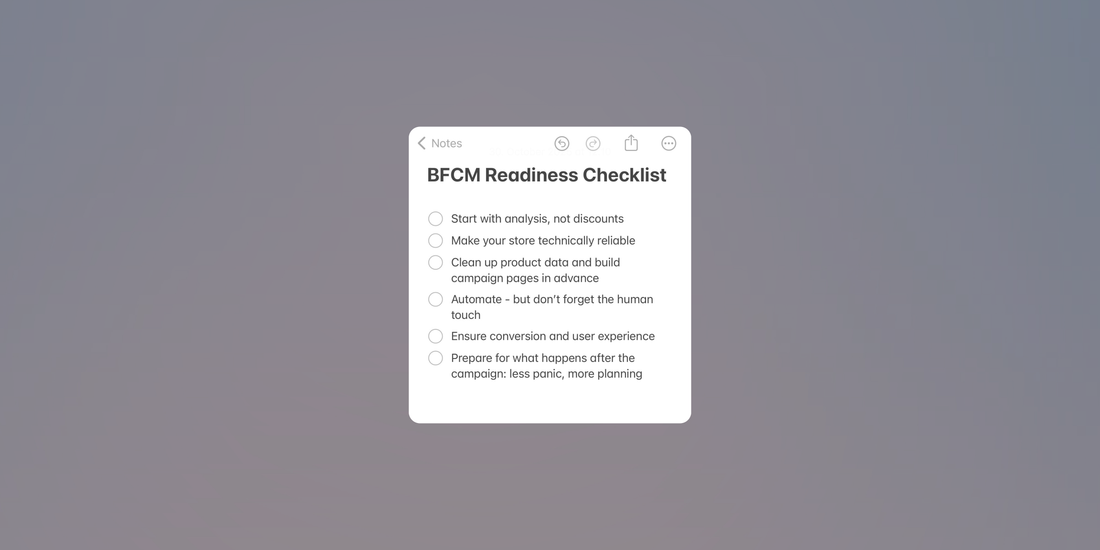Online store marketing is essential because digital competition is fiercer than ever before. Without active marketing, your online store is like a needle in a haystack – impossible to find.
The number of digital marketplaces is constantly growing, and every online store is fighting for customers' attention. Achieving visibility requires systematic marketing work, because the mere existence of an online store will not bring customers to your site. Consumers make purchasing decisions quickly online, and if they can't find your store, they will end up at your competitors.
Marketing also helps build your brand and trust. When potential customers see your online store across multiple channels, your credibility increases. This is especially important for smaller online stores that compete with large, well-known brands. Marketing is not just an expense, but an investment in the future of your online store.
Which marketing channels work best for online shopping?
The most effective marketing channels for online stores are search engine optimization, social media, email marketing, and paid advertising. Each channel serves different purposes at different stages of the customer journey.
Search engine optimization for e-commerce is a fundamental strategy that ensures that potential customers find your website when they search for your products. This includes keyword research, technical optimization, and producing quality content. The advantage of search engine optimization is long-term visibility, although results are slower to appear than with paid advertising.
Social media marketing offers the opportunity to build a community around your brand. Platforms like Instagram, Facebook, and Pinterest allow you to showcase your products in a visually appealing way. The Shopify platform allows for seamless integration with these channels, making it easy to sell across multiple channels.
Email marketing is still one of the most cost-effective ways to reach your customers. It allows for personalized communication and is an effective way to encourage repeat purchases. Paid advertising, on the other hand, helps you achieve quick results and reach precisely defined target groups.
| Marketing channel | Strengths | Intended use |
|---|---|---|
| Search engine optimization | Long-term visibility, high trust | Organic traffic, brand credibility |
| Social media | Visual presentation, community spirit | Brand awareness, product presentations |
| Personalization, cost-effectiveness | Customer loyalty, repeat purchases | |
| Paid advertising | Fast results, precise targeting | Increasing traffic, acquiring new customers |
How to measure the effectiveness of online store marketing?
The effectiveness of e-commerce marketing is measured by tracking key KPIs such as conversions, traffic sources, customer acquisition costs, and average purchase size. Without measurement, you can't know which marketing activities are producing results.
Conversion rate is one of the most important metrics that tells you how many visitors to your site end up making a purchase. The Shopify platform offers built-in analytics to help you track this and other important numbers. Customer acquisition cost (CAC) is another critical metric that tells you how much it costs you to acquire one new customer.
Tracking traffic sources helps you understand which channels bring in the most visitors and buyers. Google Analytics is a powerful tool for this purpose. The average purchase size, on the other hand, tells you how much money the average customer spends in your store. You can aim to increase this figure through cross-selling and upselling techniques, for example.
Regularly tracking metrics helps you optimize your marketing budget and allocate resources to the channels that deliver the best results. Platforms like Shopify offer comprehensive tools for this, but third-party analytics tools can also add value for deeper analysis.
The future of e-commerce marketing – how to stay competitive?
To succeed in the future of e-commerce marketing, you must constantly adapt to new technologies, platform models, and consumer trends. Staying competitive requires a proactive approach and continuous learning.
The use of artificial intelligence is becoming a key part of e-commerce marketing. It enables a more personalized customer experience and more efficient resource allocation. Digital marketing automation frees up time for strategic work and helps scale operations more efficiently.
Omnichannel will become even more prominent. Customers expect a seamless shopping experience regardless of the channel they use. Ecommerce solutions like Shopify facilitate this integration between different platforms.
Data-driven decision-making will become increasingly important. The ability to collect, analyze, and act on data is what sets successful online stores apart. Tightening data protection regulations bring their own challenges, but also opportunities to build trust.
Sustainable growth in e-commerce requires marketing that doesn't just focus on short-term sales but builds long-term customer relationships. Continuously improving the customer experience and authentic communication of your brand are key to ensuring future competitiveness.




